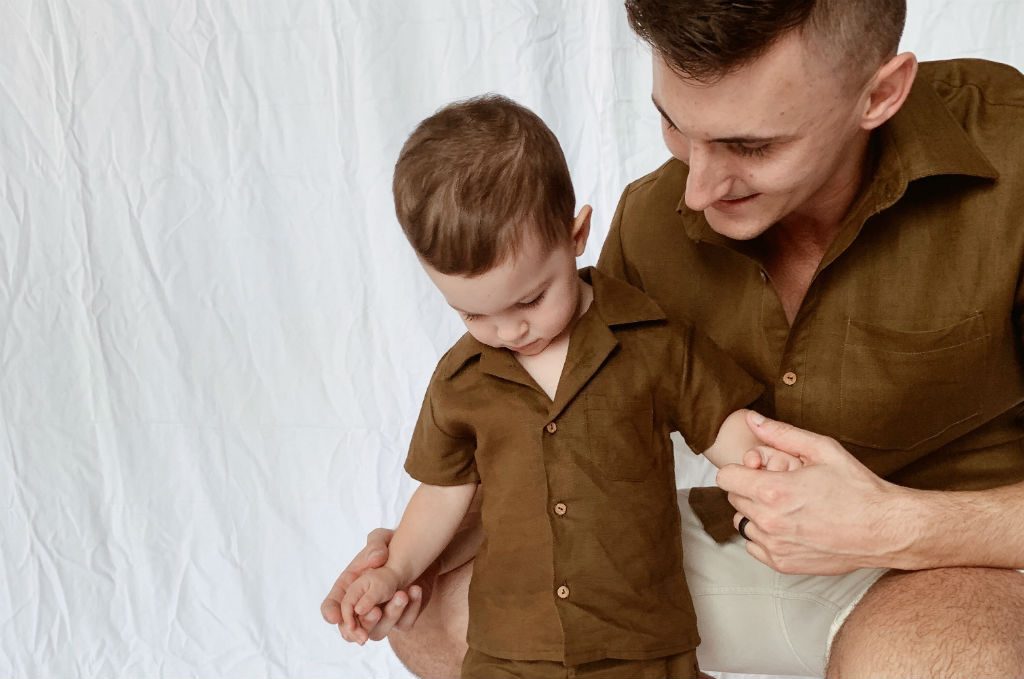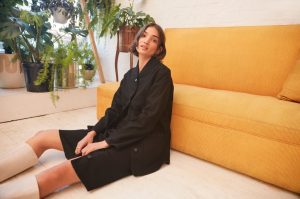Aunty Ellen is taking a break, with the shop wrapping up orders on 28 June 2021.
Brisbane-based designer Ellen Chandler is doing away with the regular fast fashion programming when it comes to making baby clothes.
The fashion graduate became interested in sustainable design techniques when she studied Fashion Design and Business at university, but it wasn’t until she looked into it further that she decided to do something in the field.
“A friend of mine suggested I watch The True Cost and invited me on an Operation Groundswell trip,” Ellen says.
“This trip to Bangladesh really changed my view on fashion. We spoke directly with garment workers in a union, went to a fair trade village, visited a mega factory and experienced natural dyeing processes.
“I knew that when I returned I had to do things differently. I had to start asking questions and educating myself on sustainable fashion.”
Ellen’s sewing journey started with her family. She made some linen button-up shirts for her brother-in-law and with leftover fabric made matching ones for her nephew Jude.
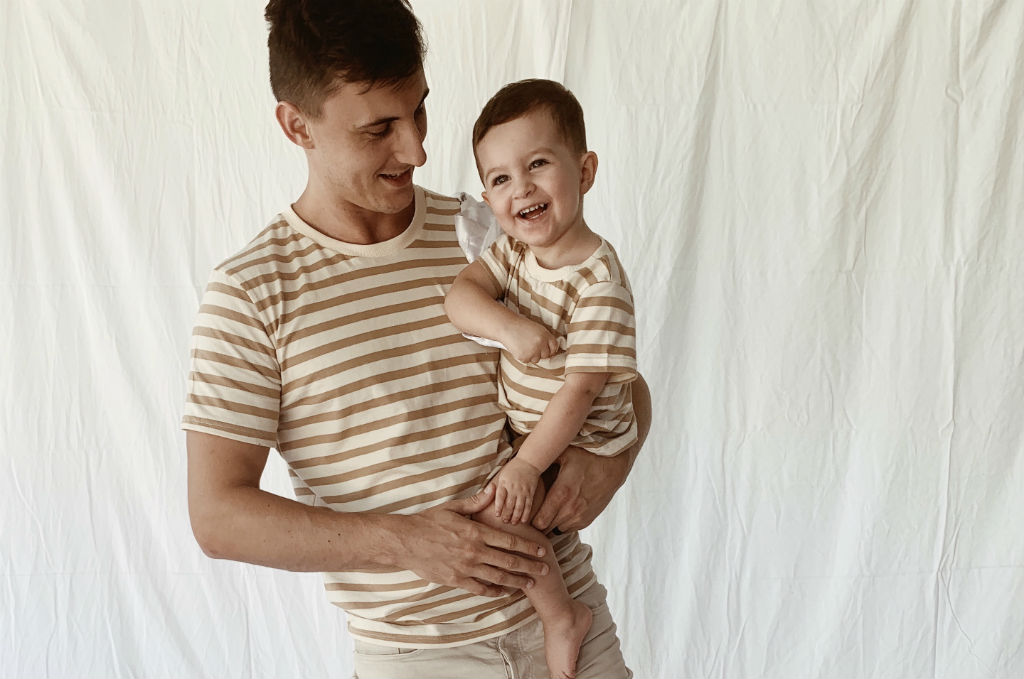
After receiving lots of compliments she decided to look into the market and found a gap for simple, natural fibre matching clothes.
“I had always planned on starting a label so I decided to launch Aunty Ellen, incorporating my two loves: bubba Jude and sustainability in fashion,” Ellen says.
The clothes are all made to order by Ellen in her studio (granny’s sewing room) in Brisbane or tiny house studio on the Gold Coast – which she currently lives between.
For the garments, the designer looks for natural fabrics such as linen, merino, cotton and organic cotton, chosen because they are “perfect for the Australian climate and not only gentle on the skin, but also on our earth.”
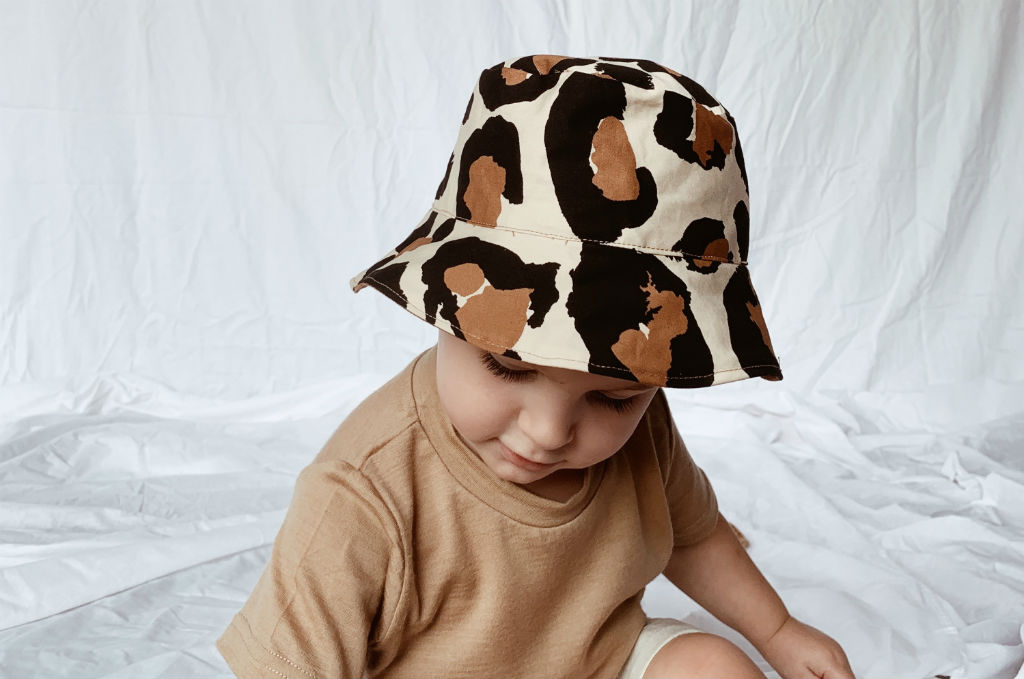
Aiming for sustainable practices at each stage of business, Aunty Ellen cares about the complete life cycle of its garments, including end of life – ensuring most, if not the entire garment, is biodegradable.
The brand’s designs incorporate limited edition, deadstock fabrics – reducing production waste and using materials that would otherwise have ended up in landfill.
Ellen recognised a significant issue of waste in the fashion industry through the overproduction of clothing.
When forming Aunty Ellen she decided that a made-to-order business model would not only reduce this associated waste but also provide a point of difference for the ability of a custom order.
With Aunty Ellen, the designer is aiming for zero waste practices, configuring patterns to reduce fabric waste.
“We hold on to larger ‘scrap’ pieces in order to make scrunchies and other accessories that may be available for sale at a later date,” she says.
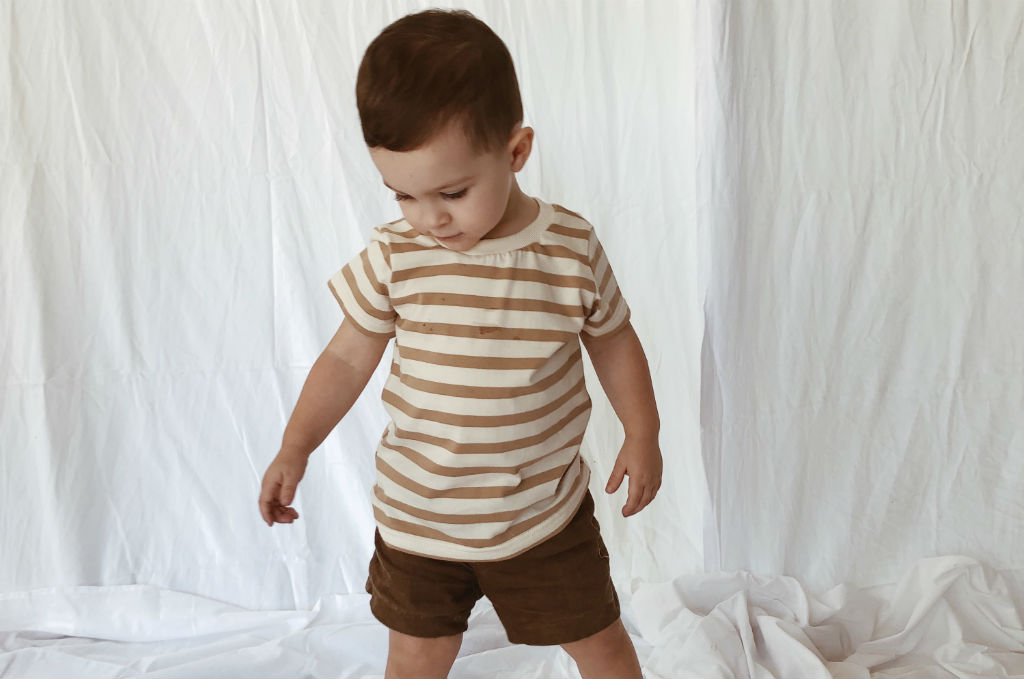
To this day, Ellen says the biggest challenge Aunty Ellen has faced as a business is competing with fast fashion brands and educating consumers.
She’s helping to share the true cost of her garments through her social channels where she’s broken down the cost of a baby button up, which she says gained a lot of interest.
The designer says her customers are people who like easy-to-wear natural fibre and fashionable clothing, plus anyone who wants to match with a cute bubba.
